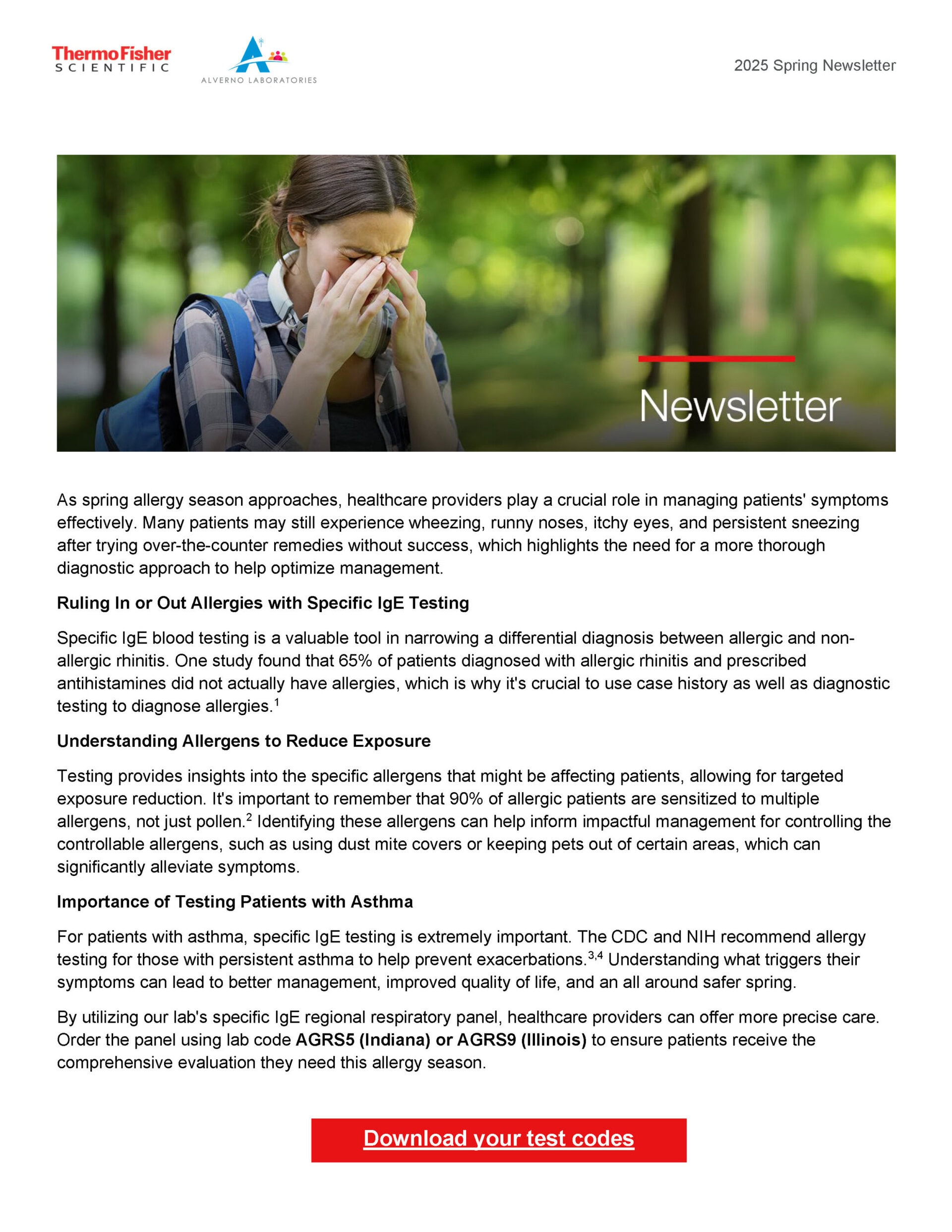References:
- National Asthma Education and Prevention Program. Expert Panel Report 3: Guidelines for the Diagnosis and Management of Asthma. National Heart, Lung, and Blood Institute. 2007.
- Centers for Disease Control. https://www.cdc.gov/asthma/pdfs/AA_Fact_Sheet.pdf. Accessed 30 October 2024
- Thermo Fisher Scientific, Summer 2022 US HCP Survey, fielded by Bioinformatics. N=230 US clinicians including allergists and primary care clinicians
- Szeinbach SL, Williams B, Muntendam P, et al. Identification of allergic disease among users of antihistamines. J Manag Care Pharm. 2004;10(3):234-238
- Ciprandi G, Alesina R, Ariano R, et al. Characteristics of patients with allergic polysensitization; the polismail study. Eur Ann Allergy Clin Immunol. 2008;40 (3);77-83.

Suggested Podcasts
Ignite your curiosity and expand your knowledge through insightful conversations and engaging allergy discussions with ImmunoCAST podcasts.
Contact Us
Have questions on how we can assist with your patient’s allergies?








